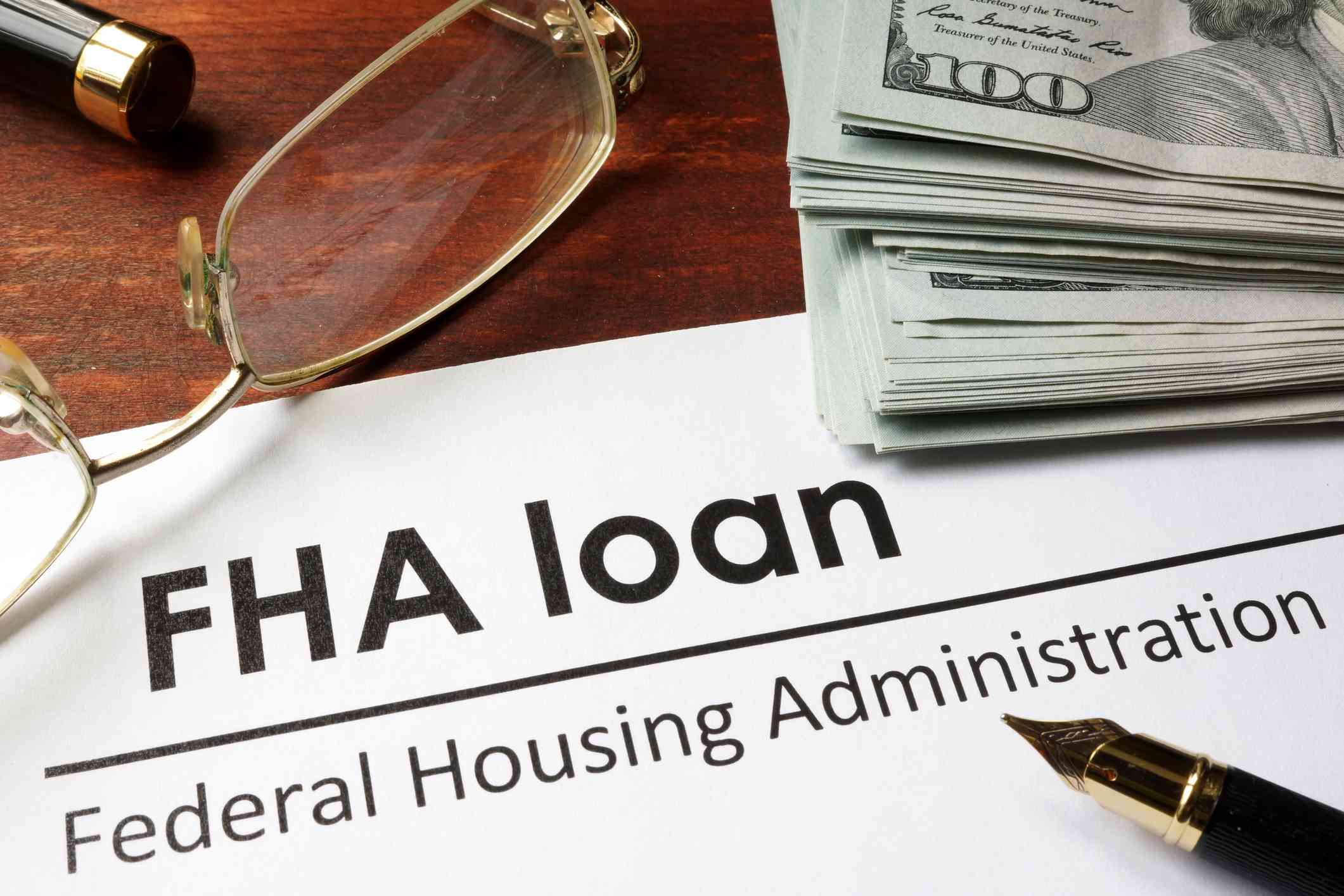How will the Nebraska housing market change in an economic downturn? The economy looks like…

Do FHA home loans have lower interest rates?| Omaha NE Home Buyer’s Guide
Are FHA loan rates lower than other loans?
The FHA loan is issued by private lenders but guaranteed by the Federal Housing Administration. It is this guarantee that protects lenders from loss and allows them to offer below market rates. Because of the FHA guarantee, even buyers with less than perfect credit can qualify for a low down payment and low rate.
We are a local lender serving Omaha, Papillion, La Vista, Bellevue, and all of eastern Nebraska. We can quickly qualify you for FHA financing and meet with you to go over options.
Go here to see how much house you qualify for with FHA
- FHA rates are lower than market rates
- Rates are less effected by credit score
- Low down payment options
- FHA is not restricted to first time home buyers
- Offers flexibility on down payment
- Co-signer options available
Yes FHA rates are lower than other loan programs
Interest rates are based on risk to the lender so the less risk of default the lower the rate. FHA is guaranteed by the Federal Housing Administration so, while they still bears some risk, the lender is protect from loss in the event a borrower defaults.
This guarantee allows FHA to offer loans to buyers will limited funds, lower income, and less than perfect credit. These buyers will get a slightly higher rate than buyers with perfect credit, but, compared to other loan programs, the difference will be slight.
However, FHA does not offer this guarantee for nothing. The FHA loan has both an upfront fee and a monthly fee charged on the payment. The FHA upfront and monthly fee is used by the Federal Housing Administration to cover lenders against loss. Because of this upfront and monthly fee, FHA is usually the option for buyers only when they do not qualify for more traditional financing. Though not a first time home buyer program, it’s more flexible income, asset, and credit requirements make it ideal for young home buyers.
FHA rates are less effected by credit score
For all mortgage programs, your credit score determines not only your eligibility but also the rate and terms of your loan. However, the FHA program was designed to help new buyers and buyers with less than perfect credit. So while the rate is still effected by the credit score, it is not effected nearly as much. An FHA buyer with a 740 score is going to get a better rate than an FHA buyer with a 620 score, but the difference will not be as wide as other loan programs. Also, unlike conventional financing, FHA’s monthly mortgage insurance fee is fixed. The MI does not go up as the credit score goes down. For these reasons there is usually a point where a buyer might still qualify for conventional financing, but the FHA loan program is the better option.
Sometimes we have to get creative with FHA financing
If you are a buyer with good but not great credit, and you need the low down payment option, we will have to take a deeper dive into your long term home ownership goals. This will help us determine if FHA or conventional are going to be the better long term option. We can even create a plan to start with the FHA loan and switch to conventional at a set date. There are many ways to structure all loan types for long term and short term financing.
For example…
One of these creative strategies is to start with FHA and lock in a higher than market rate. This would allow us, the lender, to offer a lender credit to cover some or all of the closing cost. At an agreed upon time when you have a higher credit score and a bit of equity, we can refinance into a conventional loan. This will allow you to get a home now, get into a better loan option in the near future, and only pay closing cost one time. This is just one way to structure a possible loan and a good reason why a local Omaha Nebraska mortgage lender is important. We can sit down with you and get a bit creative with the home financing strategy.
FHA low down payment options
The FHA program is the original low down payment loan. Created during the Great Depression to help buyers who did not qualify for traditional financing, it has been the go to program for new home buyers. In the last few decades other low down payment programs have come out, but they are missing some key FHA advantages.
FHA requires a minimum of 3.5% down. The great part about the FHA low down payment option is that even buyers with less than perfect credit can qualify. Conventional has their own low down payment option but, in addition to other restrictions, it typically requires excellent credit scores and other compensating factors. For buyers with low or even average credit scores and little to put down, FHA is usually the only option.
Make sure you can afford your new home
So FHA does offer low down payment loans to buyers with less than perfect credit and no compensating factor requirements.* And while FHA is not a first time home buyer program, it is used by many first time home buyers so it is important we review a buyer’s full financial picture. It is important that a buyer knows all the cost that go into home ownership. While owning a home is a great way to build an investment, there are cost that many new homeowners miss. Even a new house will have maintenance cost. It is hard to say how much, but a rule of thumb is 1% of the purchase price per year. A new home will usually have higher utility cost than renting. If you are moving from an apartment to a new home ask the previous owner for an estimate of utility cost.
Because FHA is flexible on credit, debt ratios, and assets it can often put new homeowners in financial difficulty. It is important we look not only at what you qualify for, but if you can comfortably afford the new home.
*A compensating factor is something that is not technically required to qualify but improves the overall risk. Additional assets above what is required on the loan and low debt to income ratios are common compensating factors.
FHA is not restricted to first time home buyers
A common misconception of FHA is that it is restricted to first time home buyers. The FHA program is available to any buyer. The only restriction is that you must live in the house you purchase using the FHA program and you can only have one FHA loan out at a time.
This may seem like a small difference, but the 3% down option offered by conventional does have some restrictions that limit who can use the program. Fannie Mae and Freddie Mac both have two 3% “low down payment” loans. One is not just for first time home buyers but does have some tight income restrictions (it is designed for lower income buyers). The other option has no income restrictions, but is limited to first time home buyers. FHA’s low down payment loan has no income restrictions and is not limited to first time home buyers. For buyers looking to put less than 5% down, FHA is often the only option.
FHA offers flexibility on the down payment
For some buyers, even the 3.5% down payment is an issue. For these buyers FHA does offer some options. FHA does allow gift funds from a relative. We simply need to document the transfer of funds from the donor to the buyer’s bank account or to the title company. After that the donor just needs to sign a letter confirming that the funds are a gift and not a loan. This gift can be used for any funds needed to purchase a home. The gift can be used for down payment, cost, or to pay off other consumer debts.
The most common gift donor is a parent or close relative and there are a few requirements from the donor that will need to be discussed early. FHA does require that any gift funds be sourced and documented. This will require a recent bank statement from the donor showing proof of funds. Understandably gift donors are a little uneasy with this part of the loan process. Having a conversation with the donor early so we can explain why FHA documents the funds helps ease any concerns about privacy.
FHA offers co-signer options
For buyers that do not have enough income to qualify, FHA does have options. A relative can co-sign for the FHA buyer. The co-signer will go on the loan and title just as if they lived in the home. Because this will be the co-signer’s debt it is important that they understand any issues with payment will reflect on their credit as well. The co-signer option is great for parents trying to give their kids a head start on home ownership. The occupying buyer can even have $0 income and still qualify with a co-signer. This is a great option for parents looking to purchase for their college kids. It is an opportunity for the kids and parents to build equity while in school.
Long story short…FHA rates are low 🙂
So we went through a lot more than rates in this post. But it is important to remember that rate is not always the most important factor on a mortgage. It is important to sit down with a local mortgage expert to build a proper home ownership plan. Most buyers look at a mortgage as a necessary evil to purchase a house and I tend to agree. I work all day in mortgages and I would prefer my house did not have one. But if you are going to have a mortgage on your home it is important to look at the loan officer like you would a financial adviser. With proper management of your home and mortgage debt, your equity will likely be one of your biggest assets later in life.
FHA does have a lot of pros and cons, but I think purchasing a home early will have the biggest financial impact on a new home owner. If the option is to buy now with FHA or wait until you are ready for more traditional financing, it is usually better to buy now. I would be happy to sit down with you and go over all your options. In addition to discussing mortgage options, I can give you home appreciation info for your area. My team and I will stick with you long after you have purchased to make sure you are in the best financial position.
Other useful links
- How to improve your credit
- The 20% down rule on conventional
- What is Escrow?
- How is income calculated?
- Why your assets matter
- Mortgage Calculator
- Is Credit Karma accurate?
- FHA vs Conventional, which is better?




